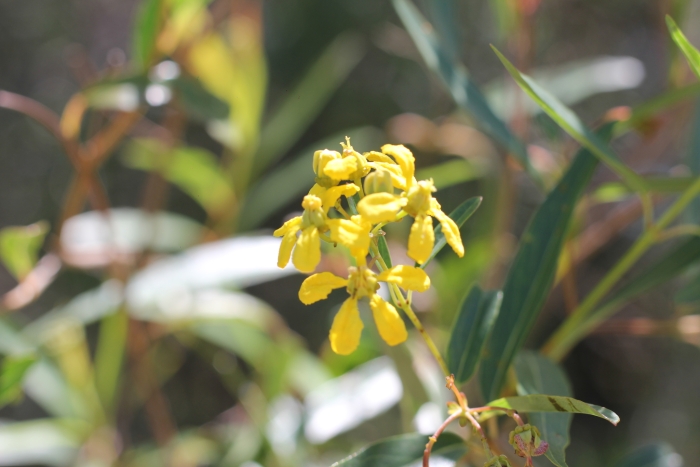Redwing
(Heteropterys glabra)
Redwing (Heteropterys glabra)
/
/

Romi Galeota Lencina
CC BY 4.0
Image By:
Romi Galeota Lencina
Recorded By:
Copyright:
CC BY 4.0
Copyright Notice:
Photo by: Romi Galeota Lencina | License Type: CC BY 4.0 | License URL: http://creativecommons.org/licenses/by/4.0/ | Rights Holder: Romi Galeota Lencina | Publisher: iNaturalist | Date Created: 2022-03-01T14:12:32-08:00 |

























Estimated Native Range
Summary
Heteropterys glabra, commonly known as Redwing, is a climbing vine native to the understory of tropical forests in South America. It can reach lengths of up to 15 feet (4.5 meters) and is characterized by its twining habit and lustrous, dark green leaves. Redwing produces clusters of small, yellow flowers that are not particularly showy but are followed by more noticeable, bright red-winged fruits that add ornamental value. The flowering season typically occurs in summer.
Redwing is valued for its attractive foliage and the unique appearance of its fruits, which can add visual interest to garden spaces. It is often used in cultivation for tropical-themed gardens, as a climbing plant on trellises or arbors, and in conservatories. This vine prefers partial shade, reflecting its understory origins, and thrives in moist, well-drained soils. While it is not drought-tolerant, it does require consistent moisture to maintain its lush appearance. In terms of maintenance, Redwing is relatively easy to care for, provided it has the right growing conditions and support for climbing.CC BY-SA 4.0
Redwing is valued for its attractive foliage and the unique appearance of its fruits, which can add visual interest to garden spaces. It is often used in cultivation for tropical-themed gardens, as a climbing plant on trellises or arbors, and in conservatories. This vine prefers partial shade, reflecting its understory origins, and thrives in moist, well-drained soils. While it is not drought-tolerant, it does require consistent moisture to maintain its lush appearance. In terms of maintenance, Redwing is relatively easy to care for, provided it has the right growing conditions and support for climbing.CC BY-SA 4.0
Plant Description
- Plant Type: Shrub, Vine
- Height: 4-15 feet
- Width: 2-3 feet
- Growth Rate: Moderate
- Flower Color: Yellow
- Flowering Season: Spring, Summer, Fall
- Leaf Retention: Deciduous
Growth Requirements
- Sun: Full Sun, Part Shade
- Water: Medium
- Drainage: Medium
Common Uses
Border Plant, Butterfly Garden, Low Maintenance, Potted Plant
Natural Habitat
native to the understory of tropical forests in South America
Other Names
Common Names: Marilope
Scientific Names: , Heteropterys glabra, Banisteria tenuis, Heteropteris angustifolia, Heteropteris glabra, Heteropteris pseudoangustifolia, Heteropterys angustifolia, Heteropterys angustifolia f. angustissima, Heteropterys angustifolia f. lanceolata, Heteropterys angustifolia f. subfiliformis
GBIF Accepted Name: